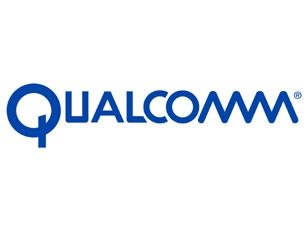Qualcomm to pay China $1 billion in antitrust settlement: report


Qualcomm is expected to pay a record fine of $1 billion to the Chinese government in order to end a 14-month antitrust probe, according to reports.
The US chip maker has held recent talks with Chinese investigators to come to a settlement of the dispute, in which China alleges Qualcomm's licensing practices are anti-competitive. According to Reuters, a source close to the matter said the tech giant is likely to pay a record-breaking fine of $1 billion to close the case.
The deal may also result in Qualcomm lowering its royalty rates by approximately a third on patents used in the country, the publication says.
On Friday, Qualcomm executives and officials from China's National Development and Reform Commission (NDRC) met to solve the dispute. While heavy fines are on the table, the results of the antitrust investigation may also have far-reaching consequences -- for example, Qualcomm's "reverse patent license" practice may be targeted and Chinese officials may attempt to force Qualcomm to change its business model.
In China, if a smartphone maker uses Qualcomm chips, the US firm's compulsory system forces companies to "authorise their patent rights to Qualcomm" and forbids them from collecting relevant royalties from other Qualcomm clients.
At the heart of this cross-licensing deal, Qualcomm says the model prevents infringement lawsuits from taking over the industry. However, critics argue that forcing firms to sign up for these deals is unfair, especially when it comes to pricing.
See also: Qualcomm asked to lower patent fees amid China's antitrust probe
If this system is targeted, smaller companies with fewer patents in their portfolio -- such as Xiaomi -- could lose out, as they may end up paying higher royalty rates for patent use. However, larger companies such as Huawei, which have large patent portfolios at their disposal, are likely to benefit as smaller firms will no longer be protected under the blanket scheme.
It is believed Qualcomm has earned over $30 billion in licensing fees over the past five years.
In December 2014, a statement released by the NDRC said the case would be settled "very soon" and the results of the antitrust probe would be released at a suitable time by the Chinese government.
In 2009, this cross-licensing system was banned in Japan as it was deemed an unfair practice.
Last year, Qualcomm invested $40 million into Chinese firms specializing in mobile and wireless technologies.
Read on: In the enterprise
- Enterprise understanding of DevOps expands, but has a long way to go
- Apple cuts off developers in Crimea
- Twitter snaps up Indian startup ZipDial
- Amazon moves into movie market
- Samsung taps new design chief
- Virgin, Qualcomm invest in high speed Internet satellite network
- Lenovo, Zenoss partner to improve IT solution delivery